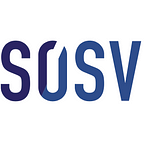Catalog Technologies is creating a data storage platform that may make hard drives, flash drives, zip drives — and any other kind of storage drive you can think of — all obsolete.
Hyunjun Park, co-founder and CEO and Nathaniel Roquet, co-founder and CTO, are using synthetic DNA that will change the way data is stored in the future.
According to Park, there are three distinct advantages of using synthetic DNA to store data.
“The first [advantage] is that DNA will last a really long time, whereas if you store information in hard drives or magnetic tape as it’s done now, it will only last anywhere from three to 20 or 30 years. If you store it in DNA, it’ll last for thousands of years,” Park said. This is beneficial for archival data storage. For example, if a library were to use synthetic DNA to store past periodicals, the information would potentially be available 1,000 years into the future.
“We encoded our first 1kB into DNA! (The Road Not Taken by Robert Frost)” — Catalog Technologies 11/3/16
“The second advantage is that DNA is really information dense — meaning you can store a lot more information given the same amount of volume. So that means it’s actually about a million times more dense than flash drives are right now,” Park explained. This advantage creates the potential to store massive amounts of data–say everything currently in the Library of Congress — into an infinitesimal amount of space.
“Then the third advantage is it’s really cheap to copy. You [could] make thousands or millions of copies of the same information nearly for free. So right now if you want redundancies in your information back-ups, you have to buy several hard drives or zip drives and physically store it in them. With DNA you can use a reaction called P.C.R. (preliminary chain reaction) to amplify your DNA starting from one molecule to a billion molecules within one or two hours,” Park said. Continuing with the library analogy, this advantage would allow the entirety of a library’s data to be copied and shared with other libraries. This would make information more accessible worldwide.
So if infinite storage space is essentially available in synthetic DNA right now, why isn’t this method more commonly used?
“Despite the advantages, the thing that’s been keeping DNA from becoming the major storage medium is the cost. Process synthesizing new DNA has been really expensive, and so we are developing a platform that gets around that. We don’t require the synthesis of new DNA to store information — we have a technology platform that is developing in IndieBio for storing information using pre-made DNA. So this makes it economically viable,” Park said.
Park stated another challenge of using DNA storage is its slow accessibility. For instance, a user could not simply plug-in DNA to their computer and access their information as is done with a flash drive. The retrieval time would be much slower (and the DNA would not be plugged into their computer). Park explained that because of this issue, Catalog Technologies is marketing to the data archival market rather than something that needs quicker retrieval times.
As of right now Catalog Technologies has been up-and-running for roughly three months. The company’s official incorporation date was September 28, and on October 3 the company began working with IndieBio.
As for the company’s idea itself, Park said it stemmed from working in a synthetic biology lab at MIT where he and his colleague dealt “with DNA manipulation, gene circuits, sensing environmental information using microbes, and recording information in the genetics of bacterial cells.”
“We [were] manipulating DNA in many different ways, and we didn’t really think about this in the context of visual information storage until it came up in the conversation we had with IndieBio — that digital information storage could benefit from the use of DNA as a sort of medium for it,” Park said.
As for long-term goals for their company, Park said, “In the long run, we want to be able to back up everybody’s data in the world. So if they want something stored forever, the hope is that they will go with Catalog Technologies to have it backed up in DNA.”
It’s a lofty goal, but if achieved — it has the potential to change the way the world stores and accesses its limitless data.
Originally published at sosv.com on January 13, 2017.
Written by Samantha Loomis, SOSV blogger.
